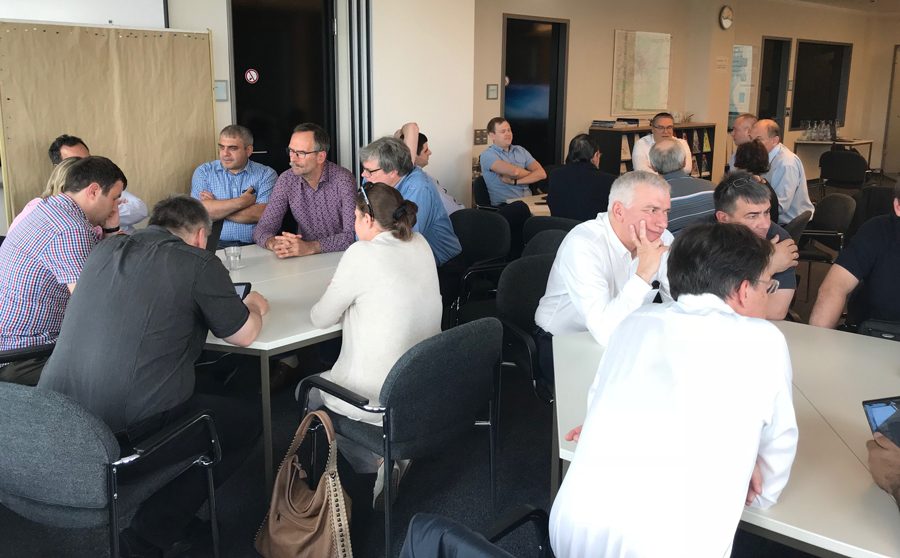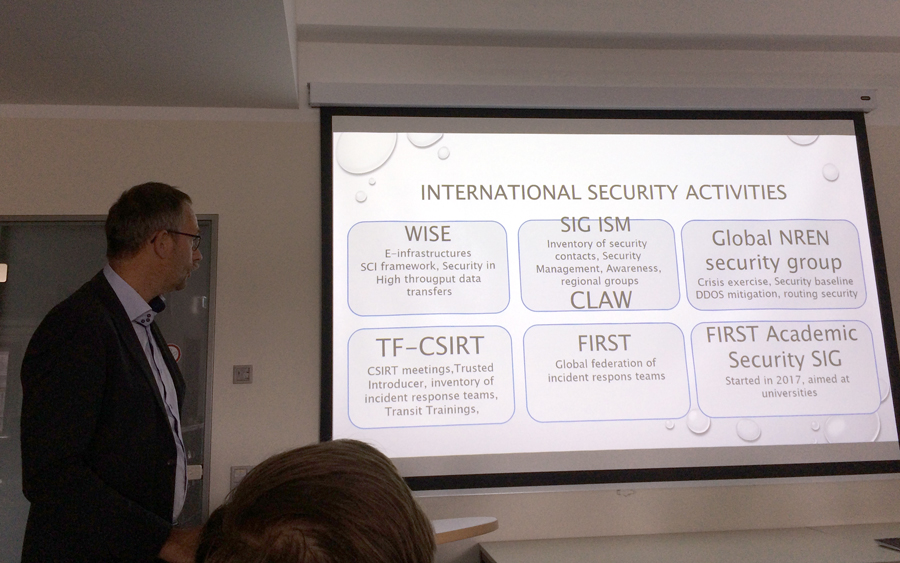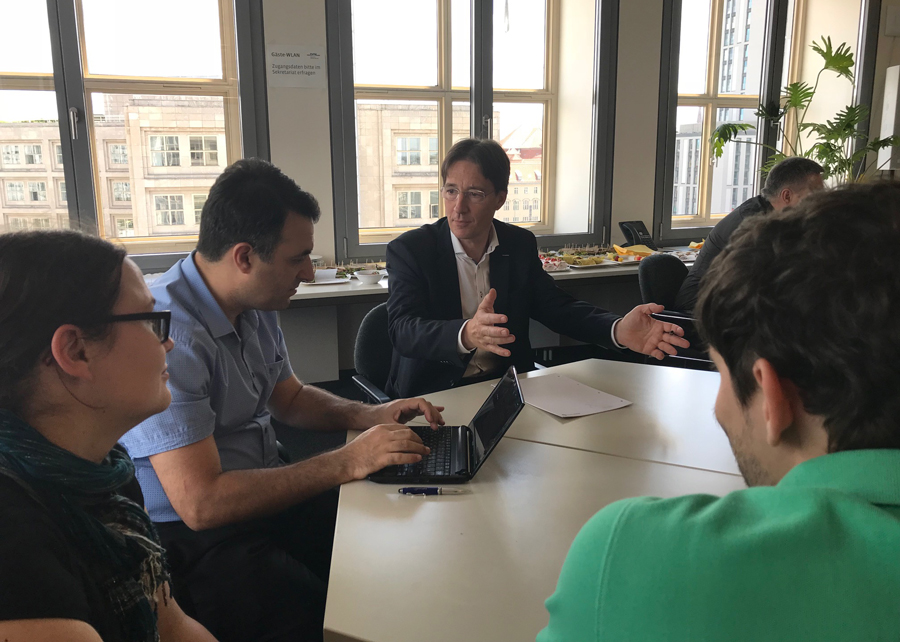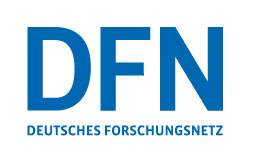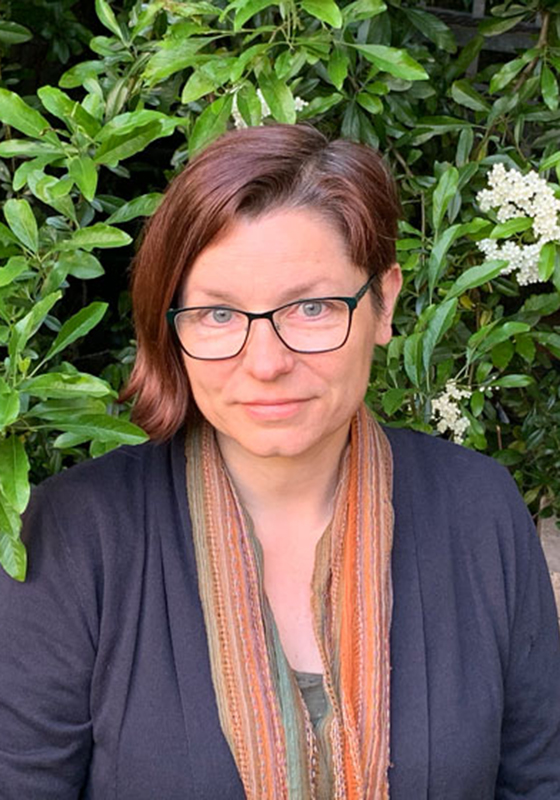Key issues for cybersecurity teams in Eastern Partnership (EaP) countries were identified in a workshop organised by the EaPConnect project in Berlin on 27-28 June 2018. Participants shared their expertise on a range of topics and tools.
Around 30 people from 12 organisations participated in the workshop, which was hosted by the German research and education network organisation DFN. The event aimed to compare cybersecurity strategies of different European NRENs, to examine their implications in positioning NRENs in the research and education landscape and to develop awareness and knowledge of NREN cybersecurity services in general.
Identifying issues
Participants were invited to disclose the challenges they face working in NREN cybersecurity teams, which are known as CSIRTS (Computer Security Incident Response Teams) or CERTs (Computer Emergency Response Teams). The key common challenges were identified as:
- identifying and acquiring good cybersecurity tools and services for an affordable price;
- raising the profile of CERTs within the country to show why they are important;
- recruiting and retaining skilled staff.
In a session of ‘peer-to-peer’ consulting, the group aimed to resolve some specific issues by matching up more expert participants with those whose skills and knowledge are less developed.
Presentations and outcomes
Helping to address the issue of tools and services, and providing broader knowledge exchange, presentations were given on a range of topics. GRENA gave a very impressive overview of its cybersecurity team’s activities, which included working with a significant list of partners and supporting the National Cyber Olympiad ‘Cyber Cube’ in collaboration with the Ministry of Justice and the Ministry of Education and Science.
As a result, GRENA decided that it would take up the GÉANT Firewall on Demand service, and the group was made aware of opportunities to join relevant task forces and special interest groups that are part of the GÉANT Community Programme. Participants agreed that the workshop had proved very valuable.

